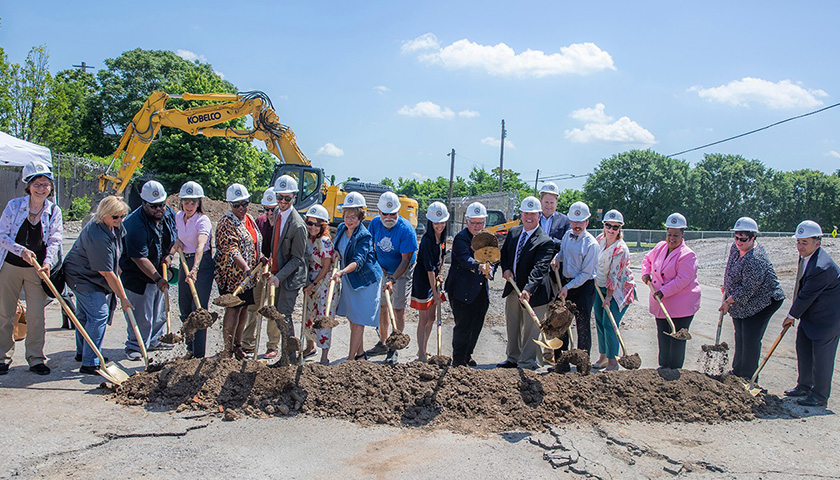Nashville Tuesday broke ground on its first permanent supportive housing complex, complete with amenities to house the homeless, the drug-addicted, and those with mental health issues.
“Today is the culmination of a lot of hard work and dedication by a number of leaders, many of whom are here today,” Mayor John Cooper (D) said at a press conference. “I am honored to be part of this official groundbreaking for Nashville’s first permanent supportive housing development.”
“It’s long past time we step up and make meaningful progress in helping our unhoused neighbors get back on their feet, because the reality of what’s happening on the streets is horrific and tragic, and has to be changed,” Cooper said. “And we have to do more as a society to provide resources for substance abuse and mental illness and continued support for people who suffer with long-term medical challenges and illness.”
Cooper said the facility will be five floors, separated into 90 units. It will have caseworkers onsite who will help treat mental health and substance abuse issues for the residents, with the goal of giving each resident the support he or she needs to remain off the streets for good.
He did not say how the occupants will be chosen.
One of the speakers at the press conference was Elizabeth Mallard, a formerly homeless woman with whom Cooper consulted on the plan to build the permanent supportive housing complex.
Mallard said that she was diagnosed as bipolar when she was young, which led to self-medicating with alcohol.
“I lived unhoused for 10 years,” Mallard said, noting that people are dying in the streets. “Most of the time [I was] sleeping behind dumpsters, behind bushes – for 10 years of that, I lived in fear.”
For those who are homeless and living outside, or going house to house, it can be dangerous,” she said. “As a woman, I can firsthand say sleeping behind a bush is terrifying. You don’t know if you’re going to wake up. You don’t know if you’re going to have your only pair of shoes still on your feet or under your head when you slept on them.”
She said the new housing complex will provide resources and support for people who have experienced situations similar to hers.
According to the National Alliance to End Homelessness, such permanent housing facilities are becoming more common.
“Investments in permanent supportive housing have helped decrease the number of chronically homeless individuals by 8 percent since 2007,” the group’s website says. “In addition to ending homelessness for people who are chronically homeless, research has demonstrated that permanent supportive housing can also increase housing stability and improve health.”
_ _ _
Pete D’Abrosca is a reporter at The Tennessee Star and The Star News Network. Email tips to [email protected].
Photo “Groundbreaking” by Mayor John Cooper.








